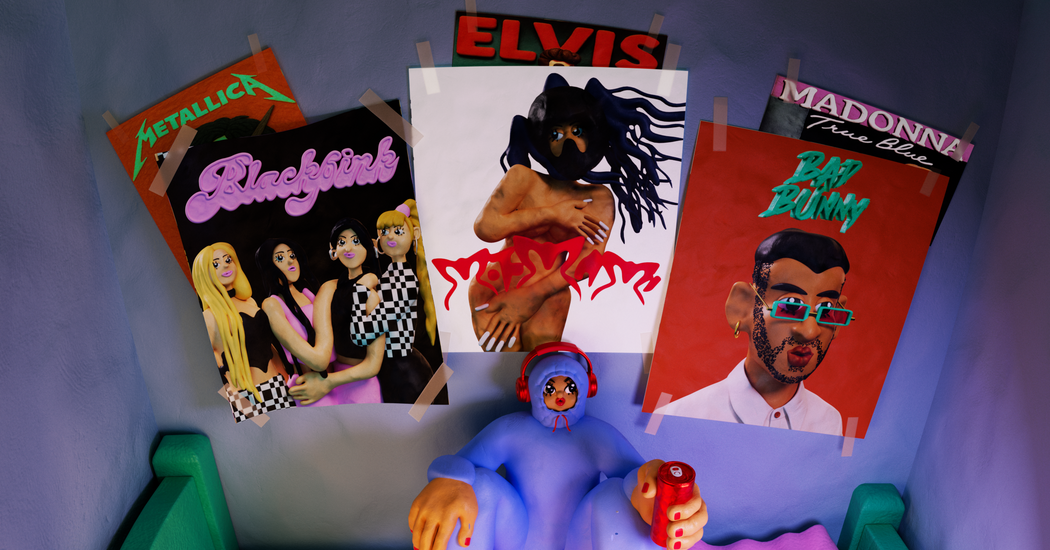Copyright The New York Times

You may not think of Chubby Checker’s “Let’s Twist Again” as an incendiary political anthem, or a tool of American power, but authorities in the Soviet Union knew better. In the early 1960s, Komsomol patrols, part of the youth wing of the Communist Party, tried to stop the spread of bootlegged records. Those who were caught buying or selling such records faced prison sentences of up to seven years. During the Cold War, pop culture was an immensely powerful force on America’s side, and the U.S.S.R. had no answer. The Soviets might have been able to win a battle against democratic capitalism as an idea, or against the American military as a force. But they could not defeat Levi’s jeans and Elvis Presley. In 1950, the C.I.A. understood this power; it funded the Congress for Cultural Freedom, which at its peak had offices in 35 countries, and purportedly supported rising artists in the belief that promoting American culture would undermine repressive foreign governments. The United States won the battle of the teenage bedroom, decisively. A 1991 Metallica concert attracted a colossal audience at Tushino Airfield in Moscow, predating the collapse of the Soviet Union by only a few months. The second Trump administration has overseen a dramatic erosion of America’s cultural power, in part because it has undermined the notion on the global stage of America as a paragon of cool. In September, at the United Nations, Trump boasted of the United States as “the hottest country anywhere in the world,” but it goes without saying that if you have to say you’re hot, you’re not. Alongside the administration’s hard power losses — the destruction of the world’s most enviable alliance network and the country’s educational and research capacities — America’s global cultural dominance is diminished every day that Mr. Trump is in office. The clearest and most immediate evidence for this decline can be seen in Canada, where I live. The border between Canada and the United States, at least in terms of popular culture, has long been porous and more or less meaningless. Canadian actors and directors — a near-innumerable list that includes James Cameron, Jim Carrey, Seth Rogen, Sandra Oh, etc. — have prospered in Hollywood. The Canadian sitcoms “Schitt’s Creek” and “Kim’s Convenience,” both pure Canadiana, found significant American audiences. On the northern side of the border, the cultural diet of the average English-speaking Canadian has not been significantly different from the average American’s for decades — an inevitability, given the relative size of America’s culture industries, its proximity, the shared language and, until recently, the shared values. Through his pointless and nasty trade war and his off-handed calls for Canadian annexation, Mr. Trump has shattered the cultural connection between the countries — a connection nearly as old as mass culture itself, dating back to the early days of film when Toronto-born Mary Pickford became the first “America’s sweetheart” and co-founded United Artists. Canadians are boycotting American travel and American products, and that includes American cultural products. The spirit behind the countless “Buy Canadian” and “Elbows Up” signs in shop windows across the country has extended to an embrace of homegrown culture and a repudiation of Americana. According to Indigo, Canada’s largest bookstore chain, sales by Canadian authors are up 25 percent from last year. The CBC, Canada’s national public broadcaster, has seen a 34 percent increase in time spent watching content on its streaming platform, Gem. The Globe and Mail, Canada’s national newspaper, concluded that “Canadians are genuinely changing their cultural habits.” Even as viewership of the Super Bowl rose to a new record in America, the average national viewership declined in Canada by 15 percent compared with the previous season. Canada is the most glaring sign of a cultural shift, and the decline in American soft power runs deeper than Mr. Trump’s damage to this longstanding relationship. American presidents are often met with suspicion or animosity outside the country: to many, Ronald Reagan was a jingoist, Bill Clinton a narcissist, George W. Bush an idiot, Barack Obama a hypocrite, and so on. But the parallel attraction to American cool — itself often positioned as countercultural and subversive, from rock ’n’ roll to hip-hop — has rarely wavered. Unfortunately, the current repudiation of American cultural exports could not be coming at a more precipitous time for the industries that create them. Over the past two decades, the American share of the global box office has declined from 92 percent to 66 percent. In 2022, 142,000 people were employed in Los Angeles County in the motion picture industry; by 2024, it was 100,000. U.S. music is also in decline. By 2023, over half of the artists generating $10,000 or more on Spotify were from non-English-speaking countries. The teen bedrooms of the world are no longer dominated by posters of American performers. The bedrooms of American teenagers are no longer dominated by them, either. South Korea’s state-driven cultural model has explicitly fostered an environment that enables the success of various TV shows and pop acts, recognizing them as a force for soft power and export markets. China is imitating that model, and both are providing an increasingly robust alternative to Hollywood’s products and American popular music. In reaction to this decline, Mr. Trump has threatened to wield his favorite, and seemingly only, weapon, threatening to impose a 100 percent tariff on films produced outside of the United States — a proposition that doesn’t acknowledge that culture is not a tangible import like, say, aluminum. Another erosive force is at work, one that’s more subtle than the normal cyclical economic cycles. To many foreign onlookers, it’s increasingly true that America is no longer attractive — either as a cultural ideal or as an aspiration. The country’s narrative has become incoherent, its brand toxic. Are you really going to stream the new movie “A House of Dynamite” and pretend that the president of the United States is a well-intentioned and considerate man who cares about the fate of the planet? America itself cannot even decide whether Superman (co-invented by a Canadian) is a good guy or not. Even Superman — who famously stands for truth, justice and the American way — is now domestically considered by some to be too foreign, too kind, too woke. What did those Soviet teenagers love about Chubby Checker so long ago? What did they hear when they listened to “Let’s Twist Again”? They were encountering personal freedom and openness to the world; that’s what American greatness represented to them. But to global eyes now, American freedom has become a self-parody — a freedom policed by masked agents who don’t identify themselves. The sense of openness has crumbled. As a U.S. Customs and Border Protection agent told The Times, “The border is everywhere now.” Who around the world would want to pretend they’re living in that country? There is a seed of hope. The borders may be closing, but the lines remain open and global culture continues to flourish. The teenage bedroom of today has been conquered by difference: different languages, different traditions, different voices, different faces. There’s “Squid Game” playing on the TV, the Icelandic-Chinese singer Laufey singing in kids’ earbuds, and a poster of Blackpink on the wall. Lux, the new album by the Spanish flamenco-pop star Rosalía and produced with the former collaborators of Justin Bieber and Kanye West, contains lyrics in 13 languages. Stephen Miller can rant all he wants about it, but ICE cannot arrest it. The Russians who threw Chubby Checker bootleggers into jail learned the hard way: You can’t deport music.



